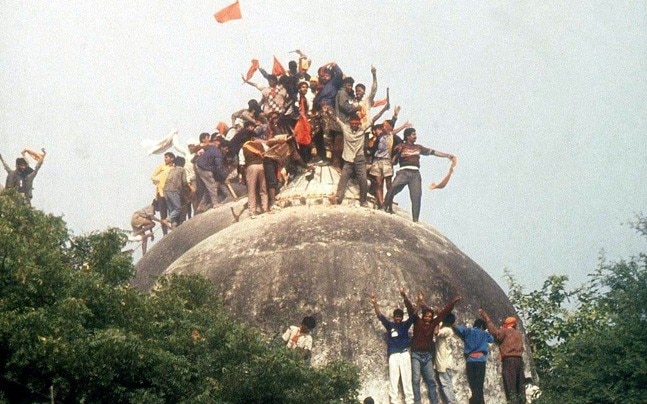Withdrawing its claim to the land on which the historic Babri Masjid stood for centuries before it was razed to the ground by marauding Hindu mobs, the Sunni Waqf Board, the primary Muslim litigant in the case has allegedly informed the Supreme Court that it no longer wishes to pursue its appeals in the matter, media reports have claimed.
The Uttar Pradesh Sunni Waqf Board functions under the UP government headed by Yogi Adityanath.
The move comes amid reports of a possible rift between members of the board following FIRs against its chairman Zafar Ahmed Farooqui Faruqui, which according to some is a case of ‘arm-twisting’ by government agencies.
The Uttar Pradesh government has recommended an inquiry by the Central Bureau of Investigation (CBI) against Faruqui into alleged illegal sale and purchase of land for the board, news agencies reported.
However, dismissing media reports, Zafaryab Jilani, Advocate, Sunni Waqf Board said no application of withdrawal has been filed.
Zafaryab Jilani, Advocate Sunni Waqf Board on reports of Sunni Waqf Board withdrawing appeal in #Ayodhyacase: Any application of withdrawal will be given in court, no application has been filed. pic.twitter.com/GhAQo8SP0f
— ANI (@ANI) October 16, 2019
Wednesday is the last day for hearings in the Ayodhya land dispute case. A five-judge Constitution Bench headed by Chief Justice Ranjan Gogoi has been hearing the Ram Janmabhoomi-Babri Masjid title suit for 39 days and had earlier set the deadline to finish arguments on October 18.
This was later brought forward to October 17, but the CJI on Tuesday indicated that it would like to conclude all arguments by Wednesday instead of Thursday.
The judgment will be reserved by the bench if the arguments conclude. The bench, also comprising justices SA Bobde, DY Chandrachud, Ashok Bhushan and SA Nazeer will have to pronounce the ruling by November 17 as the CJI will retire on that date. If the judgment is not delivered before his retirement, the entire matter would have to be heard afresh.
The Babri Masjid in Ayodhya was razed to the ground on December 6, 1992, by extremists Hindus, claiming that it was built on the site of a temple allegedly destroyed by Muslim rulers. The demolition of the medieval mosque, which was constructed under the rule of the first Mughal Emperor Babar, triggered religious riots in many parts of India that resulted in the death of more than 1000 people.
The dispute over the land has been going on for several decades, with both Hindu and Muslim groups claiming their right to it.
Shaik Zakeer Hussain is the Founder and Editor of The Cognate.












